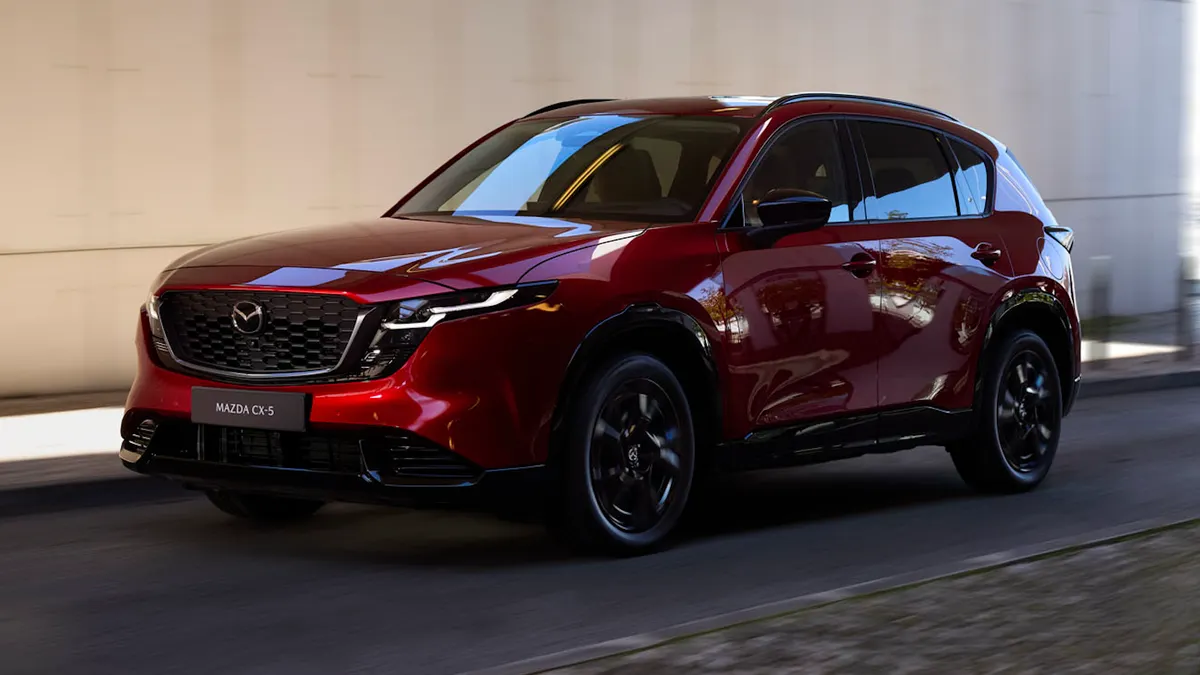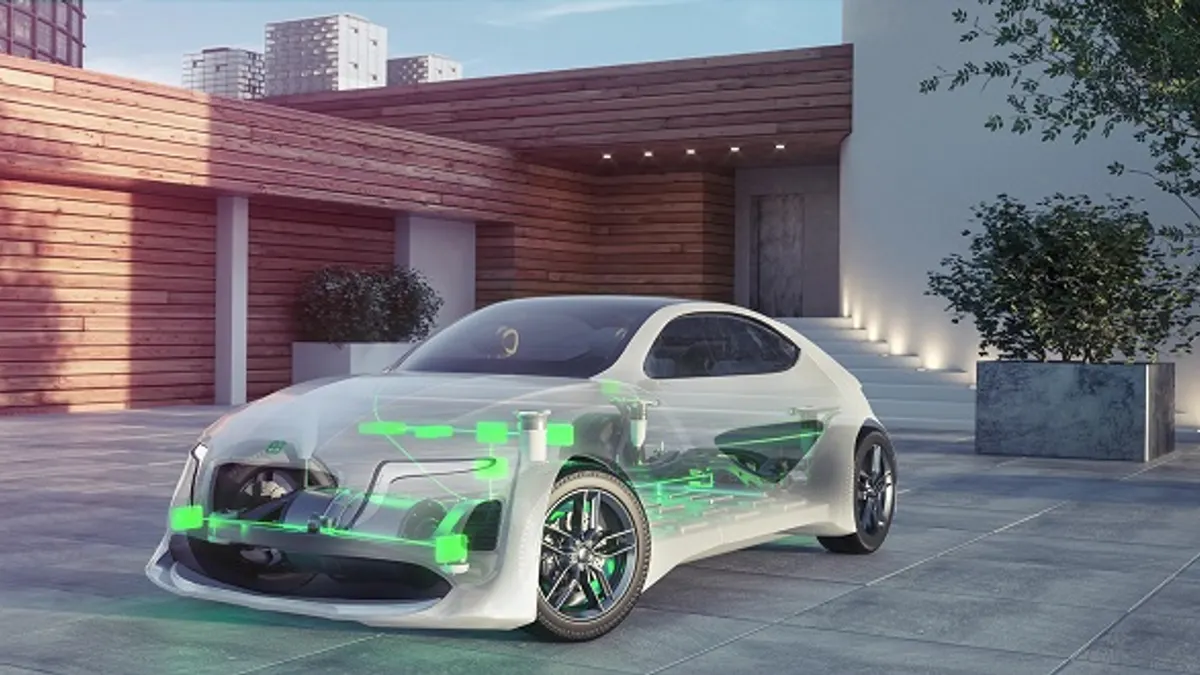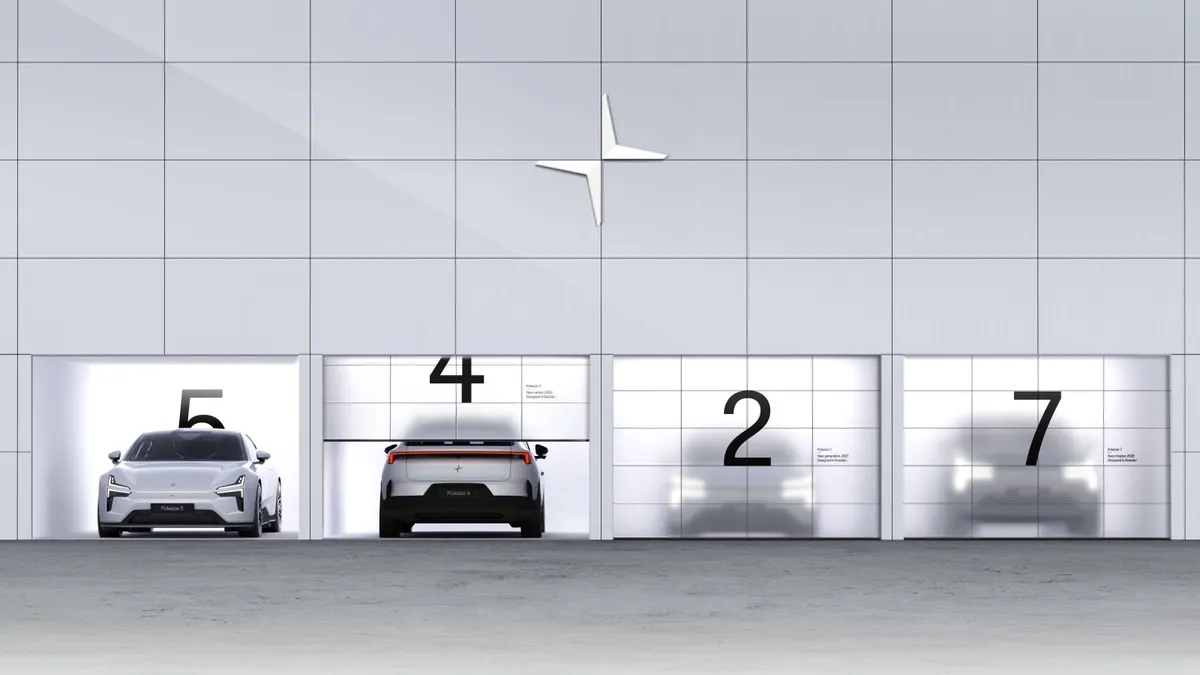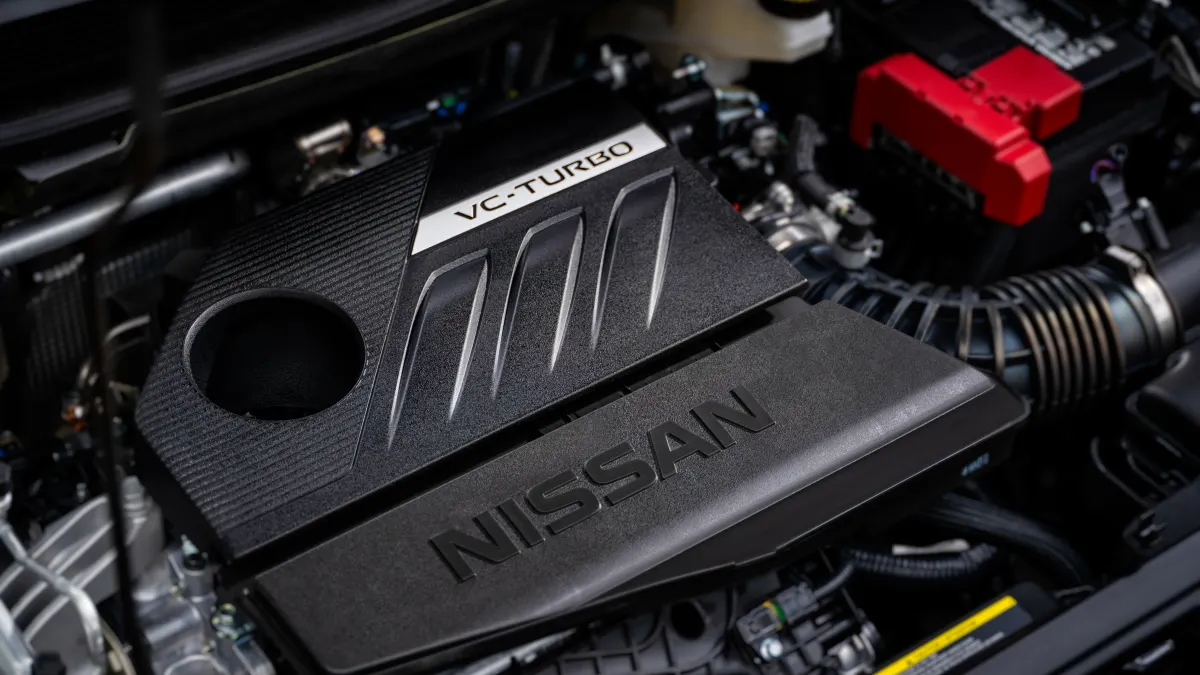Editor's note: This story is part of the WardsAuto digital archive, which may include content that was first published in print, or in different web layouts.
MALIBU, CA – Japanese automaker Mazda through the years has developed a reputation for pleasing styling and sporty handling, and it has offered a largish 3-row CX-9 CUV for some years. But (like all its other products save the MX-5 Miata) the CX-9 rolls on a front-/all-wheel-drive platform with transverse 4-cyl. (in that case, turbocharged) power.
By contrast, the new CX-90 rides on an all-new longitudinal layout, has rear-biased rear-wheel-drive and a “performance-oriented” platform and offers a choice of two new electrified powertrains. The most powerful option is an all-new 340-hp, 369 lb.-ft. (500-Nm) (on premium fuel) 3.3L “e-Skyactiv G” turbocharged I-6 with a launch-enhancing “M-Hybrid Boost” mild-hybrid electric motor between it and the transmission.
The most efficient is a 323-hp, 369 lb.-ft. “e-Skyactiv PHEV” plug-in hybrid using Mazda’s 2.5L turbocharged 4-cyl. Both drive through an 8-speed automatic transmission (with no torque converter) and feature standard “i-Activ” all-wheel drive.
Seating up to eight in its three relatively roomy rows, “CX-90 offers powerful and responsive performance, alluring design and intuitive technology,” Jeff Guyton, president and CEO of Mazda North American Operations (pictured, below), says at its late-January media debut.
Among its other interesting features is what Mazda calls “Kinematic Posture Control,” which originally debuted on the MX-5 Miata. It uses software to suppress body lift on tight corners to enhance grip while allowing occupants to maintain a natural posture through curves.
The PHEV powertrain, “tuned specifically for North America,” operates on the electric motor alone in a variety of driving scenarios. With a 17.8-kWh high-capacity battery, its projected electric-only range will be announced later following certification. “We are aiming higher rather than lower,” Guyton says. Compared to the CX-9, this new CX-90 also features larger displays and some physical buttons in its very nicely crafted interior along with other new technologies including an available “See-Through View” monitor to assist parking.
Following the presentation, we sat down with Guyton for a brief chat:
Wards: Mazda recently introduced the European-market MX-30 R-EV PHEV, which uniquely uses a new rotary engine to generate electricity to extend range beyond its battery’s capacity. Will we see that vehicle here in North America?
Guyton: Right now, we are prioritizing that for Europe, Japan and other markets where that vehicle is more appropriate relative to the sizes of vehicles in those markets, and we're going to focus plug-in efforts in the U.S. right now on the CX-90.
Wards: Is plug-in hybrid the best application of electrification for the U.S.?
Guyton: We have the high-power inline-6 with mild hybrid and the plug-in hybrid version. There is a lot of interest in electrified vehicles, and it is growing, but I think it is still an emerging technology in terms of customer experience. So, whether due to charging or cold weather or other issues, I think the plug-in hybrid has an interesting place because people are getting excited about electric and can do their daily driving on electric but won’t have to worry about longer range and charging if they’re going to drive from LA to Las Vegas, or wherever.
Wards: Will we see more battery-electrics in the Mazda line beyond the MX-30?
Guyton: No doubt we will see some, but we are on a development path that takes us through several phases of which this is the first. We will have a dedicated EV skateboard platform by the second half of this decade.
Wards: Some believe that the headlong rush toward 100% electric by so many OEMs is way premature. Is Mazda wise to be moving more slowly in that direction?
Guyton: It’s not about going slow on electric. We make 2% of the world’s cars and sell in 130 countries, so we have to address customer needs in all of those markets. There is a segment that is ready for pure EV now and a segment that is not electrifying much at all, so we will need to have a variety of approaches. We are going to get all the efficiency we can out of traditional combustion power while also introducing electrification.
Wards: You were in Europe for many years before coming to the U.S. four years ago. How is the move to electric different here vs. there?
Guyton: The European experience was driven almost exclusively by taxation, but EV adoption in the U.S. correlates largely with charging availability. While that is growing quickly in California, it’s growing on a percentage basis in the rest of the country but still very small in numbers. With the PHEV, people will be able to get the EV experience without range or public charging issues.
Wards: Will we see this engine in other vehicles besides the CX-90?
Guyton: It will be in everything we’re going to build on this large platform.
Wards: Maybe a pickup truck?
Guyton: We’re just talking about CX-90 today and the 2-row CX-70 that will come later this year.
Wards: Might we see Mazda partnering with other OEMs for pure battery EVs?
Guyton: We will have partners on the technology but not necessarily OEMs. We have a number of local Hiroshima and global supplier partners who are coming along with us. One thing we have tried to do with our electric plan is maintain the economy and employment in that part of western Japan where we have a lot of employment with suppliers and ourselves. That vertical integration is very important to us as we develop more and more battery-electrics.

















